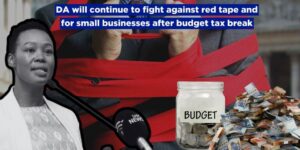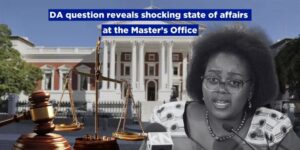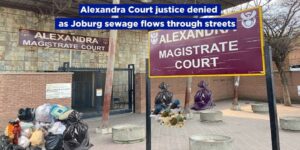The Democratic Alliance (DA) is disturbed by the rampant executive spending in public entities, where senior managers continue to earn exorbitant salaries, often exceeding national guidelines, despite underperformance, repeated bailouts and poor audit outcomes. This reflects a broken system with weak oversight and eroded public accountability.
Parliamentary replies to DA questions and public remuneration data reveal that across 13 government departments responsible for 117 entities, more than R400 million is spent annually on executive pay, often outside the bounds of the Department of Public Service and Administration (DPSA) salary guidelines. With nearly 700 state-owned enterprises in South Africa, and only a handful having responded, the full financial burden on South African citizens remains largely unknown but substantial.
The DA has analysed the response, and along with the final Bill found the following shocking information:
The CEO of the Development Bank of South Africa earns R15.5 million, making them one of the highest-paid public officials in the country.
At Transnet, the CEO receives R8.5 million annually, even as the entity faces operational failures at ports, a backlog in rolling stock, and increasing dependence on private sector logistics. This comes after Transnet received a R47 billion bailout in 2023.
The Passenger Rail Agency of South Africa (PRASA) pays its CEO R7.8 million, despite ongoing scandals, failed infrastructure rollouts, and repeated audit disclaimers.
The Road Accident Fund (RAF) CEO earns R7.1 million while the organisation remains technically insolvent, with outstanding claims amounting to tens of billions.
Meanwhile, the Council for Scientific and Industrial Research (CSIR) pays its CEO R6.92 million, including R2.3 million in bonuses over two years, despite breaching Department of Public Service and Administration (DPSA) salary guidelines.
South African Airways (SAA), still dependent on state support and struggling to regain operational independence post-business rescue, compensates its CEO with R6 million.
At Air Traffic Navigation Services, the CEO is paid R6.14 million, although the entity operates in a constrained aviation environment with no justification provided for such compensation.
The Central Energy Fund CEO receives R6.15 million, despite the entity suffering from failed subsidiary investments and reliance on state funds.
Rand Water pays its CEO R5.4 million, despite ongoing water outages, neglected infrastructure, and mounting public frustration in Gauteng.
Lastly, PetroSA, which continues to operate at a loss and faces strategic uncertainty while depending on public funding, pays its CEO R5.8 million.
Part of the spending review by the Minister Finance must include a full review of salaries at our state-owned entities. If such excesses are occurring at senior levels, it is reasonable to infer that similar practices may exist across all employment tiers within SOE’s. These pay scales must be investigated against annual performance and audit outcomes, public bailouts and fiscal support received.
This is not just a fiscal issue. It has profound implications for the effectiveness and credibility of the public service. The DPSA retains a critical role in setting national standards, establishing remuneration frameworks, and ensuring public sector ethics and integrity.
We further call on the Minister of Public Service and Administration to:
- Initiate a standardised executive remuneration framework for public entities, in consultation with National Treasury and relevant departments;
- Introduce mandatory justification and disclosure requirements for deviations from salary norms, including benchmarking practices;
- Collaborate with Parliament on systemic reforms to bring entity governance in line with public service principles.
The South African public deserves competent and ethical service delivery, these excessive salaries remain not only unjustifiable but an affront to the millions of South Africans who rely on basic services that are consistently failing.
The DA will continue to fight for fiscal discipline, performance accountability, and a unified, transparent public service culture that serves the people.




